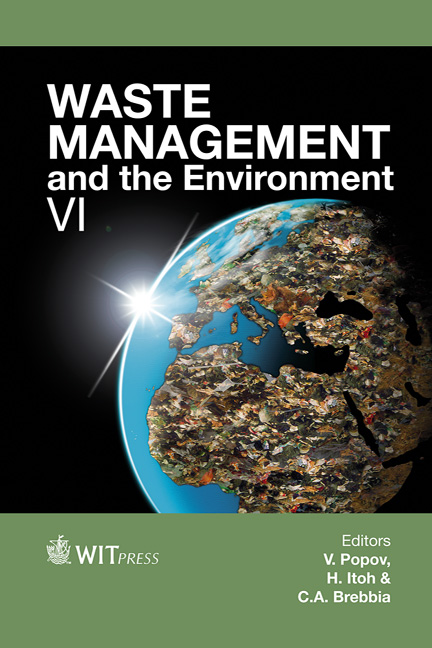RDF/SRF Evolution And MSW Bio-drying
Price
Free (open access)
Transaction
Volume
163
Pages
10
Page Range
199 - 208
Published
2012
Size
493 kb
Paper DOI
10.2495/WM120191
Copyright
WIT Press
Author(s)
M. Ragazzi & E. C. Rada
Abstract
In Europe the mechanical/biological treatment (MBT) is an increasing option as a pre-treatment either before landfilling or before combustion. In this paper, taking into account the new EU directives and in particular the Italian situation, differences between fuel derived from MSW (RDF) and Solid Recovery Fuel (SRF) are presented. In agreement with the new EU directives, RDF/SRF can be produced from approaches based both on the one-stream plant concept and on the conventional two-stream process. The first option refers to bio-drying. The effect of different strategies of selective collection of MSW is analyzed in term of characteristics of the residual MSW and its suitability to be converted into RDF/SRF. The role of respirometry is discussed too. Keywords: municipal solid waste, lower heating value, refuse derived fuel, respirometry, selective collection, solid recovered fuel. 1 Introduction The amount of municipal solid waste (MSW) has strongly grown in the last decade and continues to do so worldwide. The mechanical/biological treatment (MBT) is a term generally used for a number of waste management processes such as material recovery facilities (MRF), refuse derived fuel production, mechanical separation, sorting, composting and pasteurizing. Originally the MBT-concept has been developed in the 80s in order to divide the waste stream in wet fine fraction and dry coarse fraction. Later, with the introduction of selective collection of the dry recyclable fraction and the development of the waste-to-energy sector, MBT was presented also in the option treating the entire waste stream for producing a fuel. The aim of MBT is to minimize the environmental impact associated with landfilling of biodegradable waste and to obtain additional value from waste by
Keywords
municipal solid waste, lower heating value, refuse derived fuel, respirometry, selective collection, solid recovered fuel.





